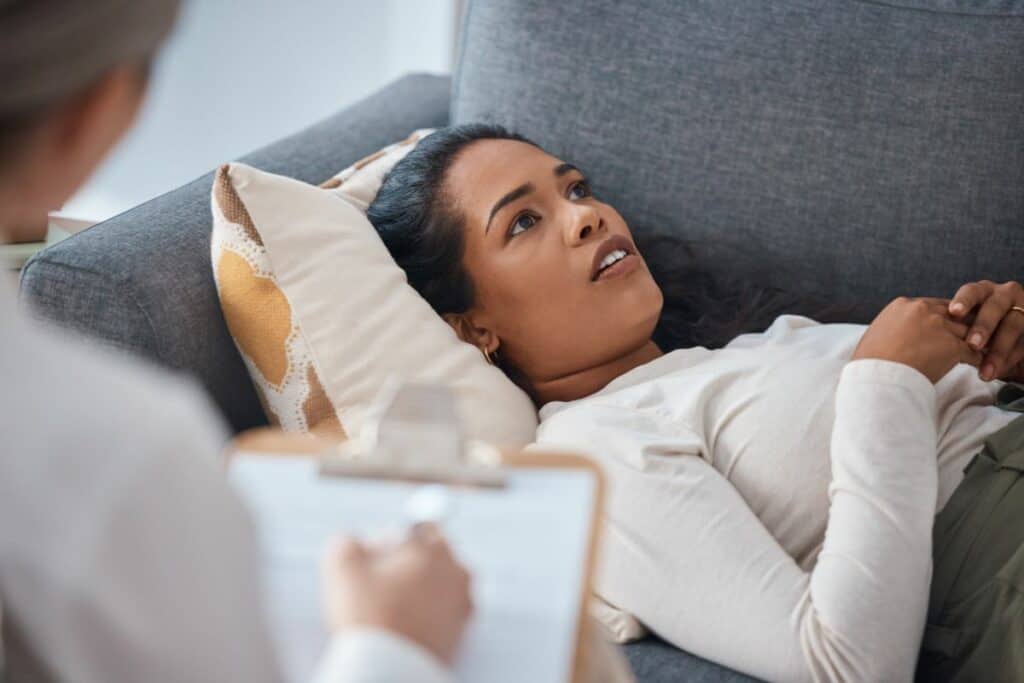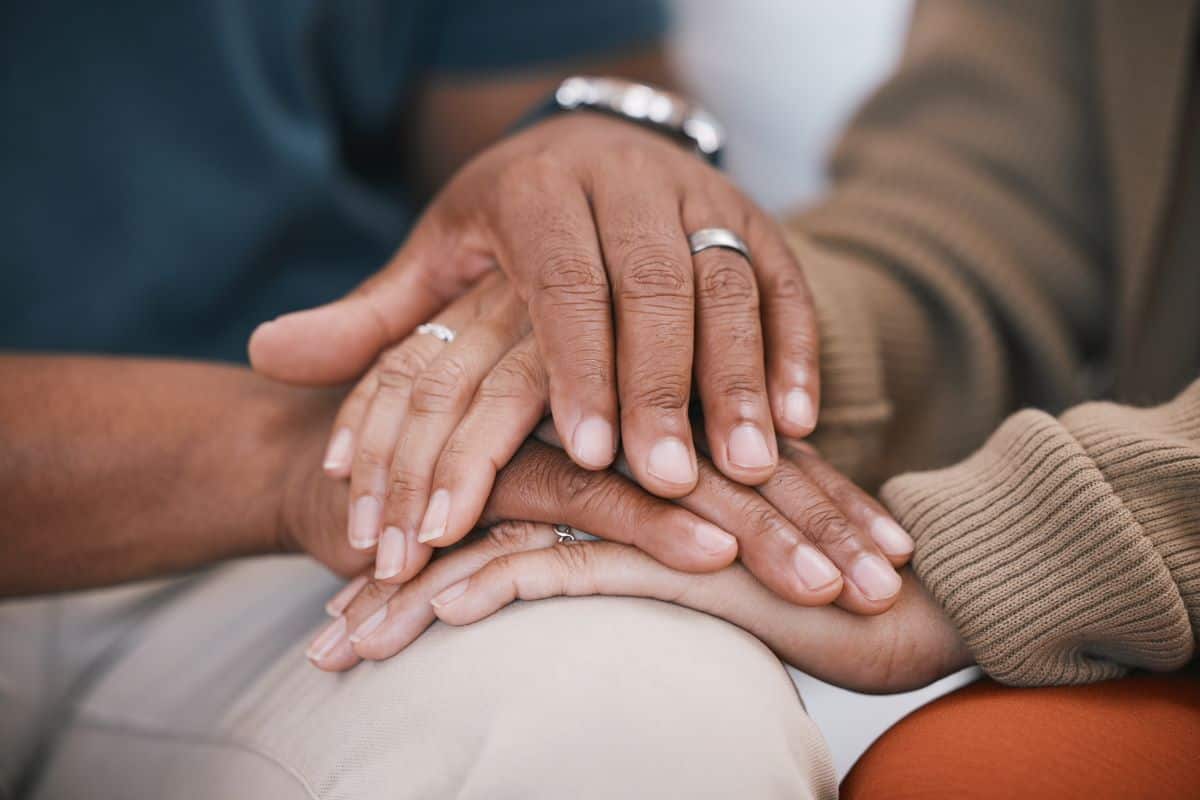Depression is a common mental health disorder that affects millions of people worldwide. It is characterized by feelings of sadness, hopelessness, and a lack of interest in activities once enjoyed.
It is important for individuals struggling with depression to explore and consider various therapy options in order to find the most suitable treatment for their unique needs and circumstances.
By engaging in the right therapeutic approach, individuals can work toward overcoming their symptoms of depression and ultimately improve their overall mental well-being.
Understanding Depression

Depression is a complex mental health condition that affects millions worldwide.
It encompasses a variety of mood disorders, including major depressive disorder, persistent depressive disorder, bipolar disorder, seasonal affective disorder, and premenstrual dysphoric disorder.
These conditions manifest in different ways, but they all share a common element: persistent feelings of sadness, hopelessness, and loss of interest in daily activities.
| Mood Disorder | Description |
|---|---|
| Major Depressive Disorder | Major depressive disorder, also known as major depression, is the most common form of depression. It is characterized by intense feelings of sadness, loss of interest, and low self-worth, often accompanied by physical symptoms like fatigue, difficulty sleeping, and changes in appetite. Major depression can be severely debilitating, affecting every aspect of a person’s life. |
| Dysthymia | Persistent depressive disorder, or dysthymia, is a chronic form of depression with less severe symptoms than major depression. Despite the milder symptoms, persistent depressive disorder can be equally debilitating due to its long-lasting nature, often persisting for two years or more. |
| Bipolar Disorder | Bipolar disorder is a mood disorder characterized by periods of extreme mood swings, from high-energy mania to deep depression. These fluctuations can be unpredictable and intense, leading to significant challenges in daily functioning and relationships. |
| Seasonal Affective Disorder (SAD) | Seasonal affective disorder (SAD) is a type of depression that occurs during specific seasons, usually winter. This condition can have a significant impact on a person’s mood, energy levels, and general well-being. |
| Premenstrual Dysphoric Disorder (PMDD) | Premenstrual dysphoric disorder (PMDD) is a unique form of depression that affects women in the days leading up to menstruation. It is characterized by severe mood swings, irritability, and overall emotional instability. |
Each of these depressive conditions is a serious mental health issue requiring proper diagnosis and treatment.
Treatment options can vary based on the specific type of depression and individual needs of the patient.
Talk Therapies

Talk therapies are often recommended for individuals experiencing depression, as they offer a range of approaches to addressing the emotional, cognitive, and relational aspects of the condition.
This section will explore four major types of talk therapies: Psychotherapy, Cognitive Behavioral Therapy, Interpersonal Therapy, and Psychodynamic Therapy.
Psychotherapy
Psychotherapy, commonly known as talk therapy, involves working with a trained therapist to explore and understand one’s thoughts, feelings, and behaviors related to depression.
The goal is to help individuals develop coping mechanisms and increase resilience in the face of life’s challenges.
Psychotherapy can take various forms, but it typically focuses on creating a supportive and non-judgmental environment where individuals feel comfortable expressing themselves.
Cognitive Behavioral Therapy
Cognitive Behavioral Therapy (CBT) is a popular and effective form of talk therapy that targets both thought patterns and behaviors contributing to depression.
CBT primarily focuses on identifying and replacing negative thought patterns, which can perpetuate feelings of sadness and hopelessness.
Examples of cognitive techniques used in CBT include:
- Identifying and restructuring negative thought patterns
- Developing problem-solving strategies
- Challenging irrational beliefs
In addition to examining thought processes, CBT also incorporates behavioral activation techniques, which help individuals engage in activities that promote a sense of accomplishment and well-being.
Interpersonal Therapy
Interpersonal Therapy (IPT) is another approach to talk therapy that specifically targets the interpersonal relationships and communication skills of individuals with depression.
The primary goal of IPT is to help improve communication and strengthen relationships, which can often be impacted by depression.
Key aspects of IPT include:
- Identifying and addressing sources of interpersonal conflict
- Enhancing communication skills and assertiveness
- Focusing on the impact of interpersonal relationships on mood
IPT can be particularly effective in addressing depression stemming from grief, conflict, or significant life changes.
Psychodynamic Therapy

Psychodynamic therapy is a form of talk therapy that delves deeper into past experiences and unresolved emotional issues that may contribute to current symptoms of depression.
Examining childhood or past experiences aims to uncover and address the unconscious roots of depressive feelings.
Key elements of psychodynamic therapy include:
- Exploring how past experiences impact current emotions and thoughts
- Analyzing defense mechanisms and coping strategies
- Identifying unresolved emotional issues and addressing them
While psychodynamic therapy may require a longer treatment period compared to other talk therapies, it can lead to lasting change and insight for individuals suffering from depression.
Group Therapies
Group therapies for treating depression offer a powerful and supportive avenue for individuals struggling with depressive symptoms.
These therapeutic settings provide a space where individuals can connect with others who share similar challenges, fostering a sense of belonging and reducing feelings of isolation.
Group Therapy
Group therapy is a form of therapy that typically involves a small number of people with depression who participate in sessions led by a trained therapist.
Participants can benefit from the support and understanding of others who are facing similar challenges.
This type of therapy aims to increase self-awareness, improve interpersonal skills, and foster emotional growth.
Participants share their thoughts and feelings in group therapy sessions while the therapist guides the discussions and promotes a safe, non-judgmental environment.
The collaborative nature of group therapy allows individuals to develop better-coping mechanisms and learn from others’ experiences.
Group therapies can be based on cognitive-behavioral, psychodynamic, or other therapeutic approaches, and they can be tailored to suit the specific needs of the participants.
Family Therapy
Family therapy is a type of therapy that involves multiple family members, aiming to improve the overall functioning of the family unit.
This is based on the premise that family dynamics might influence an individual’s depression and that addressing these relationships can have a positive impact on the person’s mental health.
In family therapy sessions, a trained therapist works with the family, helping them to communicate more effectively, resolve conflicts, and strengthen emotional bonds.
Family therapy can be especially useful for individuals with depression whose relationships with their family members have become strained or problematic due to their mental health struggles.
The family is encouraged to work together to support the person with depression and to promote a more understanding and empathetic family environment.
Couples Therapy

Couples therapy, also known as relationship therapy or marital therapy, is a form of group therapy that focuses on the romantic relationship between two people.
It is aimed at addressing conflicts, improving communication, and enhancing overall relationship satisfaction.
Couples therapy can be particularly helpful for individuals with depression, as a strong and supportive relationship can have a substantial impact on mental well-being.
During couples therapy sessions, both partners are actively involved in the therapeutic process.
The therapist facilitates discussions and activities designed to help partners identify the underlying issues that may be contributing to their relationship difficulties.
Partners learn to actively listen, empathize with each other, and work together to establish healthier patterns of interaction.
By addressing these relationship issues, couples therapy can play a crucial role in improving the mental health of individuals with depression.
Alternative Treatments
In addition to traditional therapies and medications, alternative treatments for depression have gained attention as complementary approaches to managing depressive symptoms.
These options include electroconvulsive therapy (ECT), mindfulness meditation, and diet and exercise.
Electroconvulsive Therapy
Electroconvulsive Therapy (ECT) is an alternative treatment for depression that involves administering electric currents to the brain.
This method stimulates brain chemicals that play a role in mood regulation, leading to an improvement in depressive symptoms.
ECT is often used when patients have not responded to traditional antidepressant medications or when the severity of depression poses a significant risk to the individual’s health.
Although ECT may cause some short-term side effects, such as confusion and memory loss, the treatment has demonstrated its effectiveness for many patients with severe depression.
Mindfulness Meditation
Mindfulness Meditation is a mind-body approach that can help people manage stress, anxiety, and depression.
It involves focusing on the present moment, accepting thoughts and feelings without judgment, and developing a non-reactive awareness of the current experience.
Numerous studies have shown that mindfulness practices can reduce depressive symptoms and promote a more balanced emotional state.
By practicing mindfulness meditation regularly, individuals can learn to cultivate an increased sense of self-awareness, emotional regulation, and inner stability, which may be particularly beneficial for those suffering from depression.
Diet and Exercise

Eating a healthy diet and regularly engaging in physical activity are essential components of overall well-being that can also have an impact on depression.
A balanced diet rich in nutrients, such as omega-3 fatty acids, vitamins, and minerals, can help support brain health and improve mood.
Similarly, regular exercise has been shown to release endorphins, which are the body’s natural feel-good chemicals, thereby reducing depressive symptoms.
Additionally, engaging in regular physical activity can have numerous benefits for mental health, including improved sleep, reduction of stress, and increased self-esteem.
Incorporating a healthy diet and exercise into one’s daily routine may serve as a complementary approach to managing depression alongside other treatments.
Frequently Asked Questions
What are the most effective therapies for depression?
Several therapies have been proven effective in treating depression, such as cognitive therapy, interpersonal therapy, and medication.
Cognitive therapy, in particular, has been shown to help individuals with depression by addressing negative thought patterns and developing healthier coping mechanisms.
Each person’s experience with depression differs, so the most effective therapy may vary depending on individual needs and circumstances.
Can talk therapy effectively treat depression?
Yes, talk therapy, also known as psychotherapy, can effectively treat depression for many individuals.
It involves discussing feelings, thoughts, and behaviors with a mental health professional to help identify and change patterns that contribute to depression.
Many people find that talk therapy offers lasting benefits as they learn new skills to cope with life’s challenges.
If you are interested in finding a licensed mental health professional, you can use online directories such as Find-a-Therapist, GoodTherapy, or Psychology Today.
What is the role of interpersonal therapy in treating depression?
Interpersonal therapy (IPT) is another type of talk therapy specifically designed to help individuals with depression by focusing on relationship issues and communication patterns.
It aims to improve interpersonal relationships, enhance social support, and resolve conflicts that may contribute to depression.
By addressing these issues, IPT can help individuals better manage their emotions, reduce depressive symptoms, and improve overall well-being.
Are there alternative therapies for managing depression?
Apart from traditional therapies like cognitive therapy and interpersonal therapy, there are alternative approaches that some individuals find helpful for managing depression.
These may include mindfulness-based therapies, such as mindfulness-based cognitive therapy (MBCT) and mindfulness-based stress reduction (MBSR), which teach techniques for cultivating greater self-awareness and emotional regulation.
Additionally, lifestyle changes, such as exercise, a healthy diet, and sufficient sleep, can also play a significant role in managing depression.
It is essential to consult with a mental health professional to determine the most suitable treatment plan based on individual needs and preferences.






